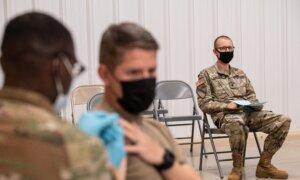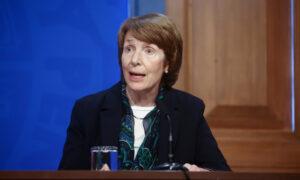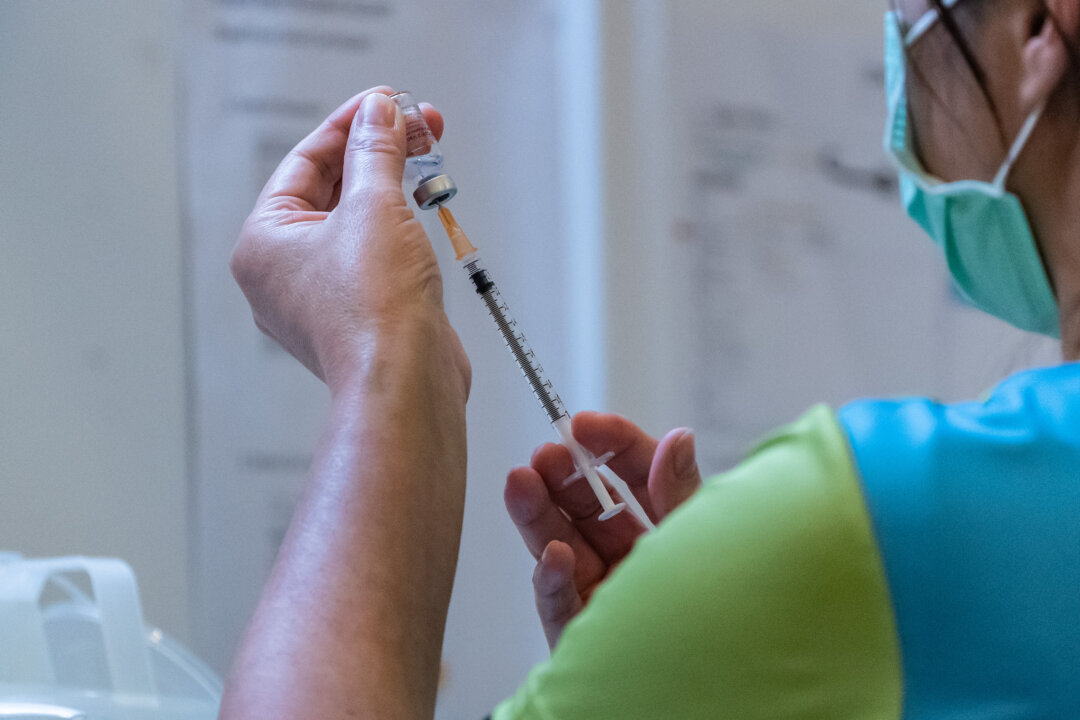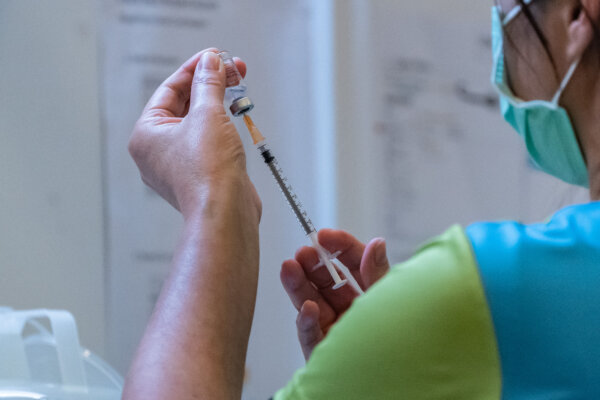Some People Suffered Chest Pain, Palpitations After COVID-19 Vaccination: Study
Recipients of COVID-19 vaccines were likely to suffer at least one symptom such as chest pain after vaccination, according to a newly published prospective study.
Researchers also found no cases of subclinical heart inflammation in the small group of participants.
Dr. Ming-Yen Ng and other Hong Kong researchers recruited people to undergo tests and imaging before taking a COVID-19 vaccine and again after receiving two shots. They wanted to see if there were any cases of subclinical heart inflammation, or myocarditis without symptoms.
After excluding people who tested positive for COVID-19 following a vaccination, or people who did not return for the followup testing, the study population was 67.
Researchers found no signs of subclinical myocarditis in the test results, such as an elevation of high-sensitivity cardiac troponin T. Cardiac magnetic resonance imaging (CMR) also did not show abnormalities.
“COVID-19 vaccination did not induce any CMR imaging, blood marker, or ECG evidence of myocardial inflammation in individuals with no significant cardiac history,” the researchers said.
At the same time, 23 participants said they experienced chest pain and/or other heart problems, such as palpitations, that manifest in patients with myocarditis.
In that subset, however, there was no statistically significant increase in any markers. That meant the patients did not have myocarditis under the Lake Louise criteria, which requires certain findings on CMRs.
The participants also took blood tests, and researchers detected a statistically significant decrease in white blood cells and a statistically significant increase in C-reactive protein.
Reassurance?
Dr. Ng, a clinical associate professor at The University of Hong Kong’s Department of Diagnostic Radiology, and colleagues said the findings could help patients.
The research “provid[es] some reassurance that COVID-19 vaccinations do not typically cause subclinical myocarditis,” they wrote.
“These findings can hopefully contribute constructively to the discussion of vaccine hesitancy,” the Hong Kong authors also said.
Dr. Peter McCullough, an American cardiologist who was not involved with the study, said that the statements indicated a bias towards vaccination. He told The Epoch Times via email he did not find the study reassuring, given how other studies have found evidence of subclinical or clinical myocarditis.
The study excluded people who had a history of cardiac disease. Participants had to be at least 12 years old and have no prior COVID-19 vaccination or infection.
Of the 84 recruits, eight contracted COVID-19 after the first dose and were thus excluded.
“We took advantage of Hong Kong’s fortunate situation of having a large COVID naive population to assess the effects of the COVID-19 vaccine. We wanted to make the most of the situation and not have COVID-19 confound the study results,” Dr. Ng told The Epoch Times in an email.
Of the nine recruits who did not return for a followup scan, at least some could have suffered vaccine side effects, Dr. McCullough said.
Recruitment happened from September 2021 to February 2022. Participants took either the Pfizer or CoronaVac vaccines.
Symptoms
Chest pain and other symptoms linked to the heart are often reported after vaccination.
“These symptoms occur independently from COVID-19 vaccine myocarditis, which is a severe form of heart damage with large areas detectable by cardiac MRI,” Dr. McCullough said.
“In addition, our study group asked specifically about these symptoms as we wanted to document them. This also potentially introduces over-reporting as some patients may have ignored symptoms under normal circumstances but when asked, would declare symptoms they may have otherwise ignored,” Dr. Ng said.
The observational nature of the study meant it could not prove the vaccines caused any of the symptoms, the doctor said.
Randomized, controlled trials are considered the most rigorous way to analyze vaccine safety but prospective studies can help provide data by examining the same patients before and after an intervention.
But prospective studies are of dubious validity when they have no unvaccinated control groups with some matching characteristics, which the Hong Kong study lacked, Dr. Andrew Bostom, a retired professor of medicine in the United States, told The Epoch Times.
The authors said limitations include their sample size being relatively small and predominantly being Chinese. Because the MRIs were conducted within two weeks of vaccination, they added, the results don’t cover the longer term.
This article has been archived for your research. The original version from Epoch Times can be found here.






